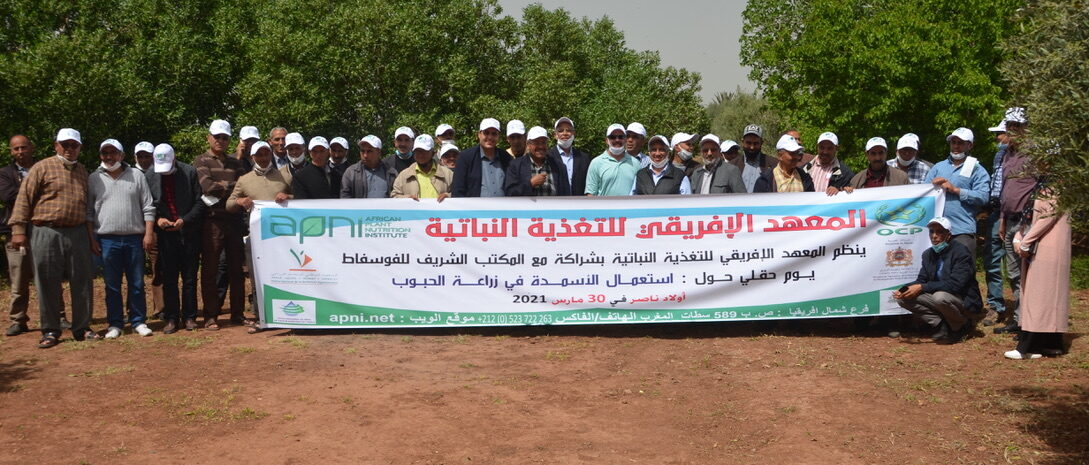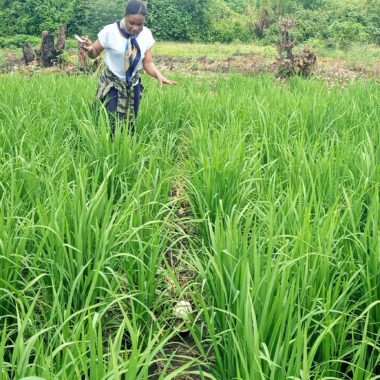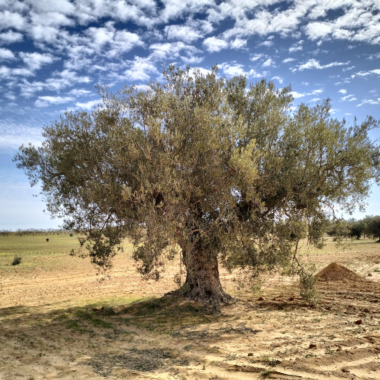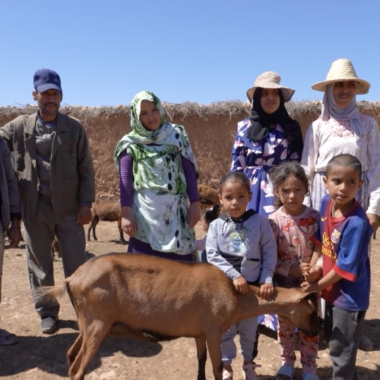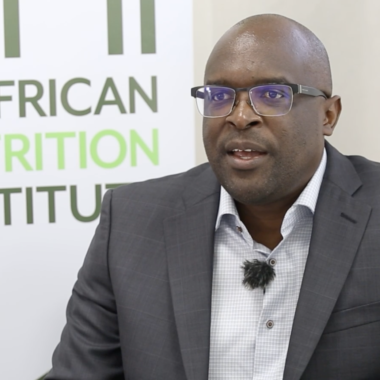Series of Field Days Puts Focus on Best Nutrient Management for Wheat and Lentil Growing Regions in Morocco
APNI North Africa organized a series of field days designed to highlight best nutrient management practices in various wheat and lentil production regions in Morocco. Due to the restrictions of COVID-19, all field days were organized with a limited number of participants (less than 50 per field day). In total, APNI North Africa established 41 on-farm wheat trials and 10 on-farm lentil trials across Morocco. Selected trials were used to disseminate information on local 4R Nutrient Stewardship during the 4 field day events attended by farmers, extension agents and scientists.
The events were held in collaboration with APNI’s national partners and were part of the 2020-21 cropping season for the Cross Regional Research and Development Initiative (CRRD-Initiative) supported by OCP.
Rainfed Wheat
Two days were dedicated to rainfed wheat production, with events held in the provinces of Settat and Safi. The first field day, held on March 10 in the province of Settat, was co-organized with ONCA Ben Ahmed on March 10. Participants included local farmers, extension agents of ONCA Ben Ahmed, and scientists of APNI.
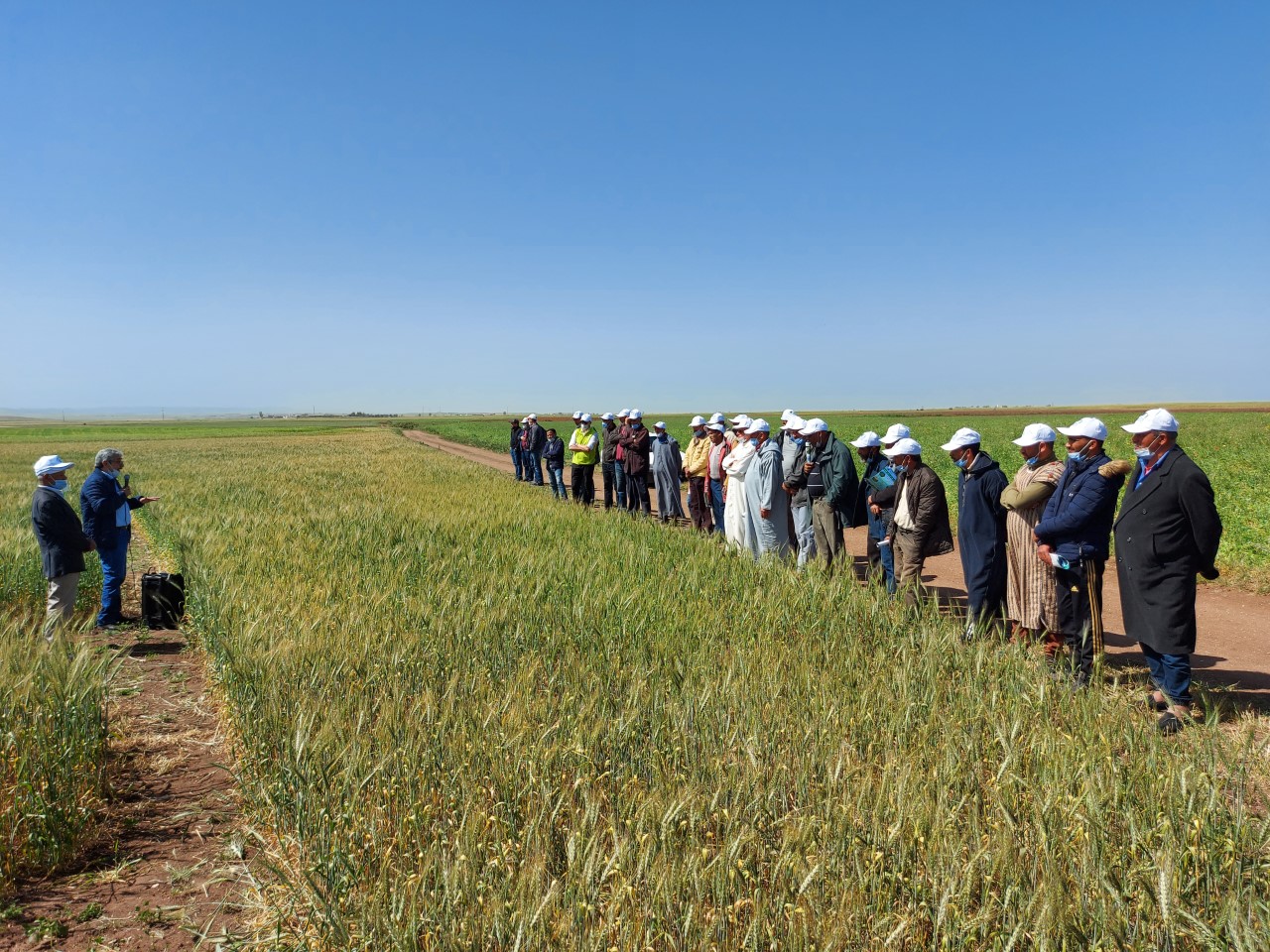
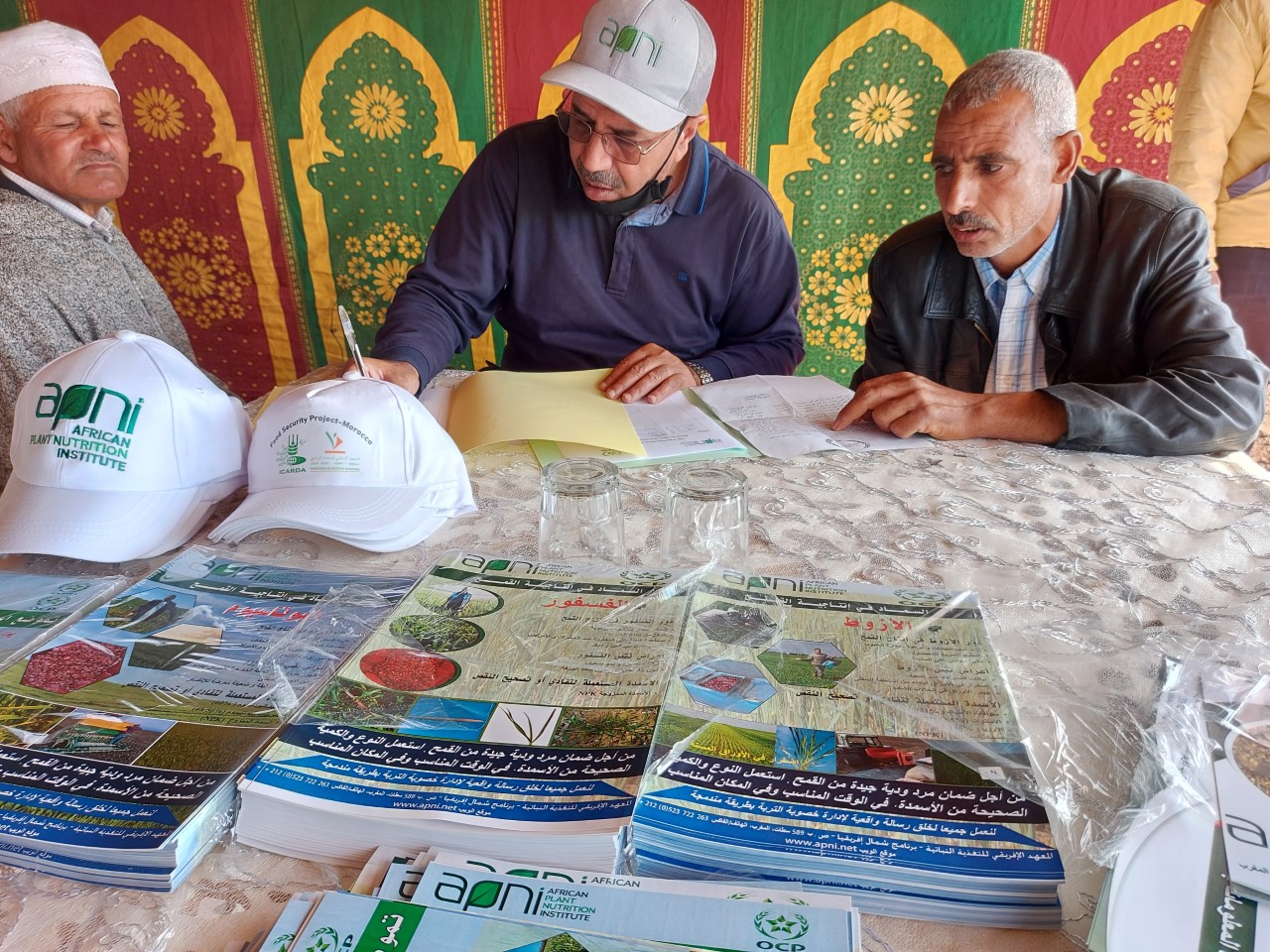 Participants at the rainfed wheat field day held in Settat.
Participants at the rainfed wheat field day held in Settat.
“The objective of the field day was the dissemination of the principles of 4R Nutrient Stewardship based on the recommendations of the Nutrient Expert decision-support tool,” explained APNI North Africa Program Manager, Dr. Hakim Boulal.
The second field day was organized on March 23 within the rural community of Goraani, a semi-arid region of Safi province. The event gathered farmers, scientists from APNI North Africa, and representatives of Al Moutmir-OCP programs, ONCA, and INRA.
“As the group visited the platform with its different treatments, the discussion with farmers focused on the right management of NPK, but also on the best cropping practices for wheat and chickpea,” explained Dr. Boulal. “Our specialists from the participating institutions enriched the learning process and helped address a variety of questions from farmers related to cereal and food legume production.
Irrigated Wheat
The third field day, held on March 30, focused on irrigated wheat production. The event took place in the rural community of Souk Sebt in Fquih Ben Saleh Province. Farmers, APNI scientists, local extension agents from ORMVA and INRA scientists attended the event.
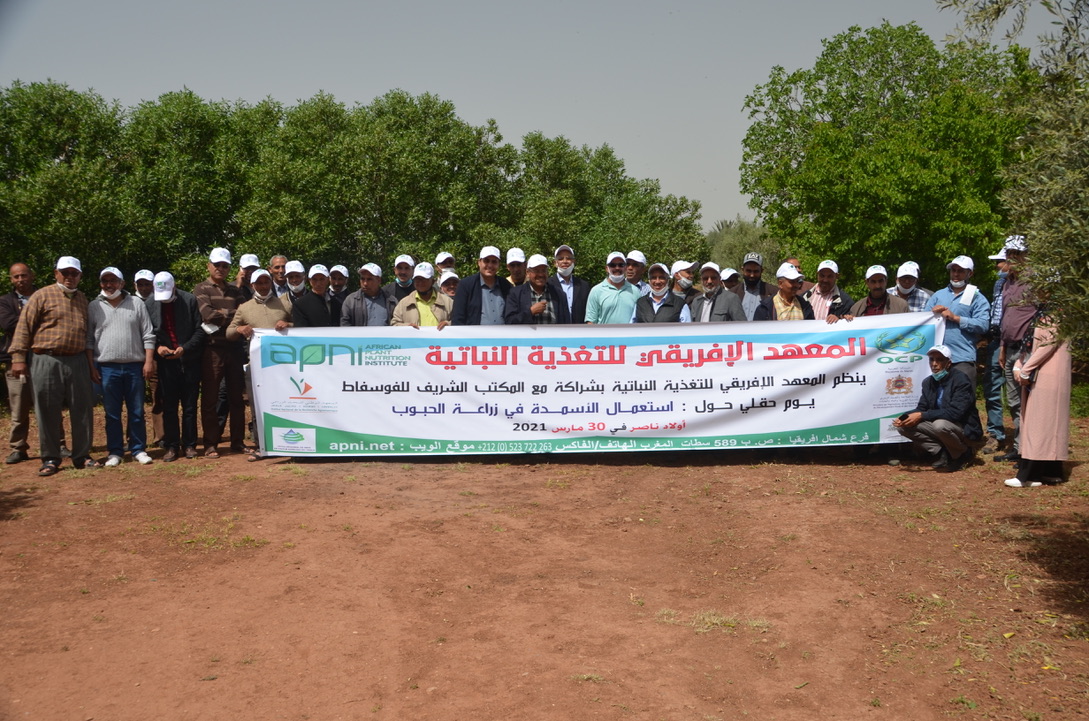 Participants of the irrigated wheat field day in Souk Sebt in Fquih Ben Saleh Province.
Participants of the irrigated wheat field day in Souk Sebt in Fquih Ben Saleh Province.
“Participants were able to see the applied fertilizer treatments and their visual effect on wheat production,” described Dr. Boulal. “These events allow for open discussion between farmers and our different specialists about pertinent crop management interventions that can be adopted.”
Lentils
The fourth field day turned to lentil production and the role of best nutrient management practices for the crop. The field day was organized on April 7 at the rural community of Ain Sbet in the province of Khemisset. Participants included farmers and extension agents, scientists from APNI and INRA, representatives of ONCA and Al Moutmir-OCP program, and representatives from local service providers.
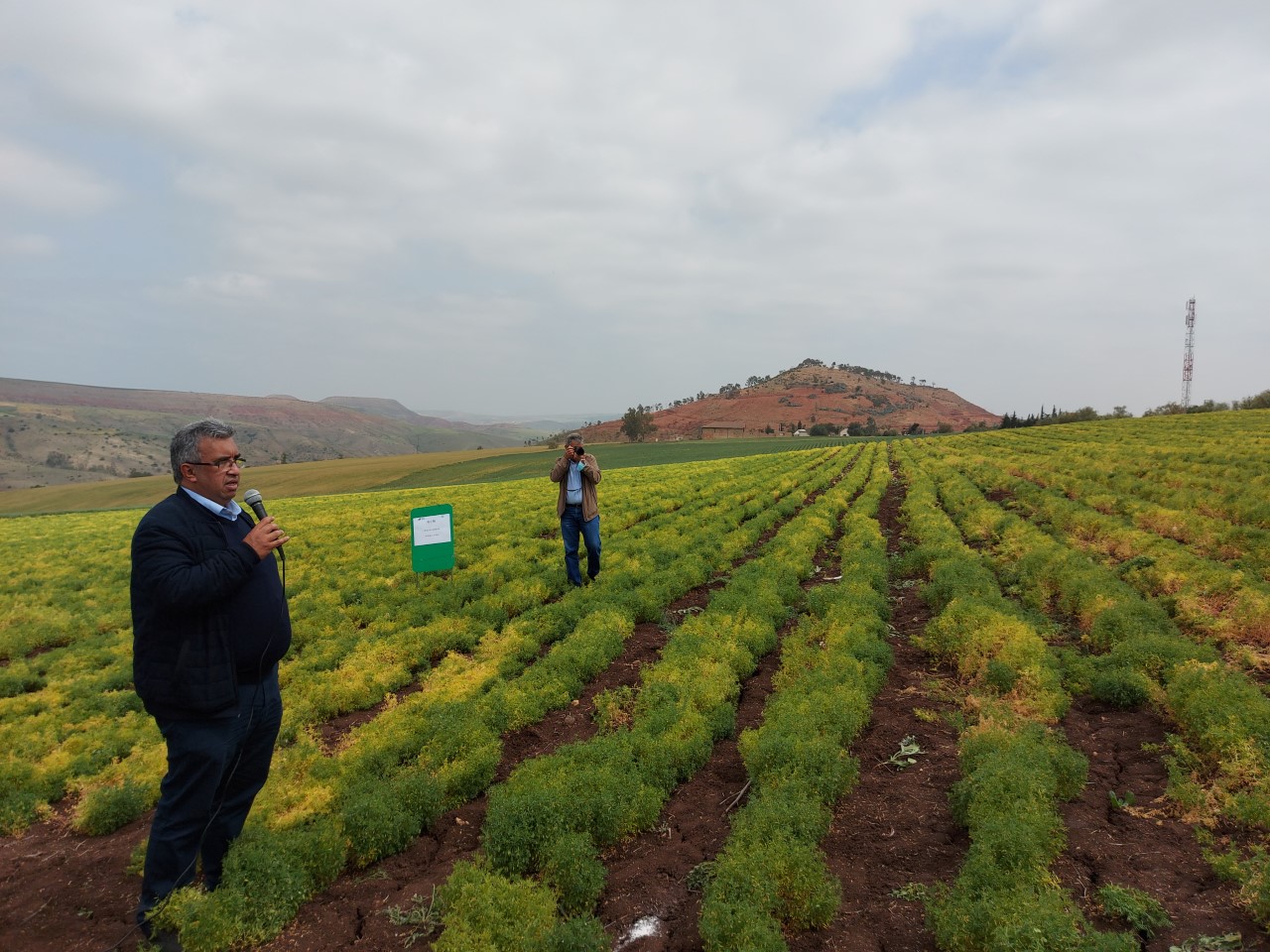
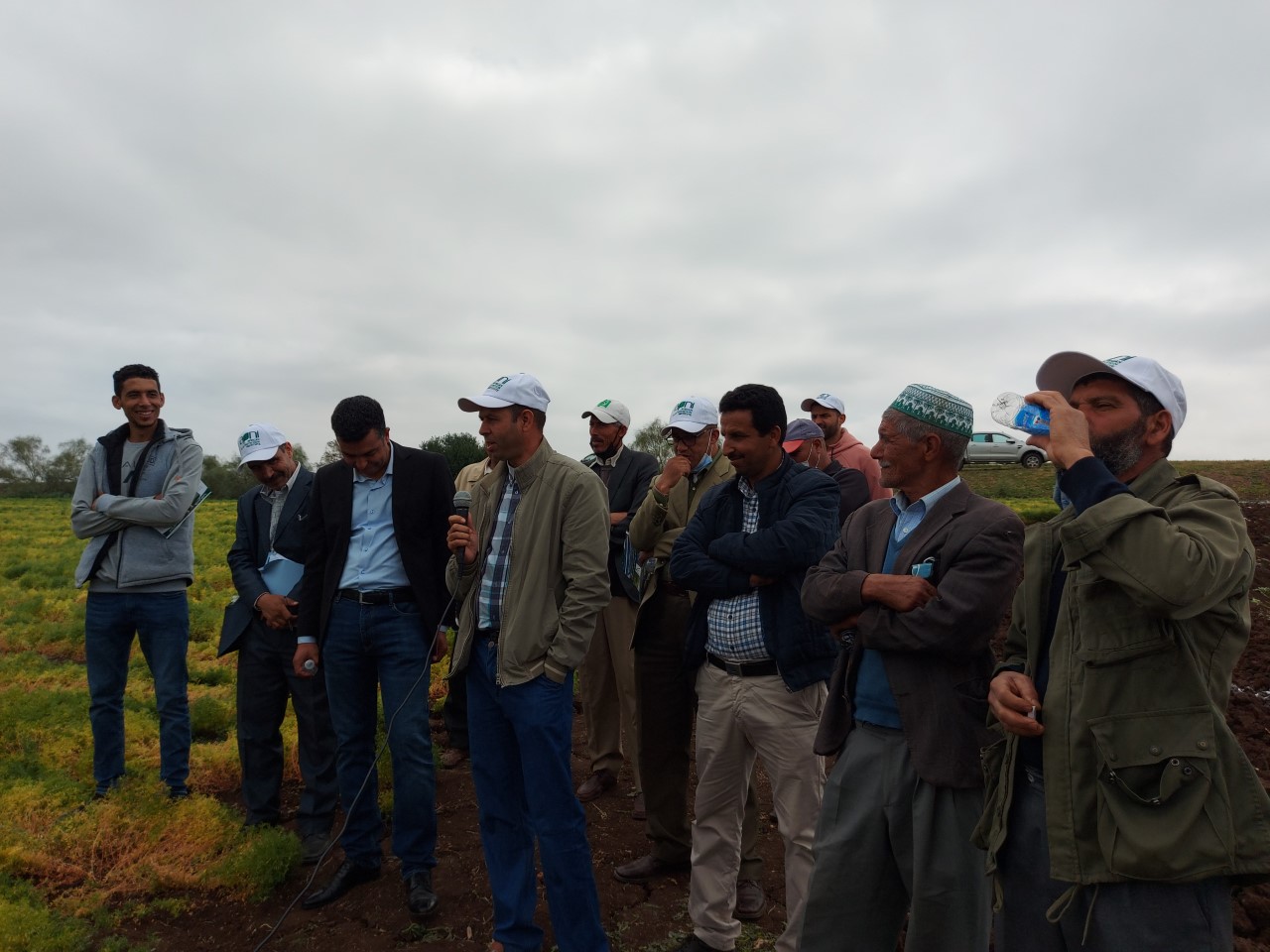 Dr. Hakim Boulal discusses lentil fertilization strategies with participants in Ain Sbet, Khemisset.
Dr. Hakim Boulal discusses lentil fertilization strategies with participants in Ain Sbet, Khemisset.
“As APNI scientists outlined the objectives of the on-farm research platform they emphasized the fundamental importance of balanced use of N, P and K fertilizers in improving yields in lentil, and food legumes in general,” said Dr. Boulal. “These events invite a broad discussion about crop fertilization and other cropping practices being tested, and provide for good opportunities for famers to access a range of local experts to help with their crop production goals.
APNI Contributors: Mohamed Boutfirass, Consulting Agronomist; Dr. Hakim Boulal, North Africa Program Manager

